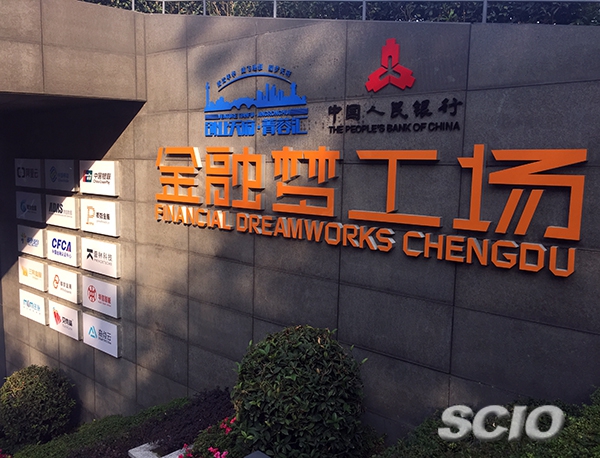Chengdu aspires to be the financial hub in west China
The financial technology startup BankLink had a choice among Beijing, Shanghai and Chengdu to locate. Despite Beijing and Shanghai being the favorites for many Chinese entrepreneurs, the fintech company eventually decided they would settle in Chengdu, capital of western China's Sichuan Province.

The reason, according to heads of the company, was the city's new focus on developing its finance sector. Known for its spicy cuisines and as home of China's giant pandas, Chengdu has now put the stakes on the financial industry, trying to attract ambitious financial entrepreneurs from across the country.
Financial Dreamworks
One of the flagship establishment for Chengdu's developing finance sector is the Financial Dreamworks Chengdu, a three-story, 7,000-square-meter co-working space, said to be China's first financial startup incubator of this size.
The space opened a year ago, and has since attracted more than 40 financial startups, filling the building in just six months. With about 500 people filling the building's capacity, some companies had to make over a few recreational places and turn them into work space, according to people working there.
Chen Zhengting, co-founder and CIO of BankLink, said the fintech company opted for the Financial Dreamworks instead of rent-free space because it matched their ambition.
The Financial Dreamworks, according to its general manager Zheng Kuang, focuses on the red-hot fintech industry, and occupants of the co-working space have formed a complete financial ecosystem that includes a diverse mix of companies working on credit-based payment, blockchain technology, cloud computing, big data-based financial risk control, and others."Entrepreneurs of different teams working here can interact with each other and share precious information among them," said Zheng.
In addition, Chen said he also trusted in the government-backed incubator as it sets higher bars for companies that settle in. Instead of admitting companies that only want to make a quick buck, the space's lessor made sure to allow in ones with longterm prospects, creating a genuinely friendly environment for serious entrepreneurs.
The incubator also invites representatives from government agencies and financial institutions to come and visit, so that the teams here can get first-hand information on the latest policies and possible reforms, Chen said.
Since it set foot at the incubator in June, the firm has now reached industries including catering services, tourism, and automobile after-sale services. It serves, for instance, more than 2,000 chain catering service providers, Chen said.